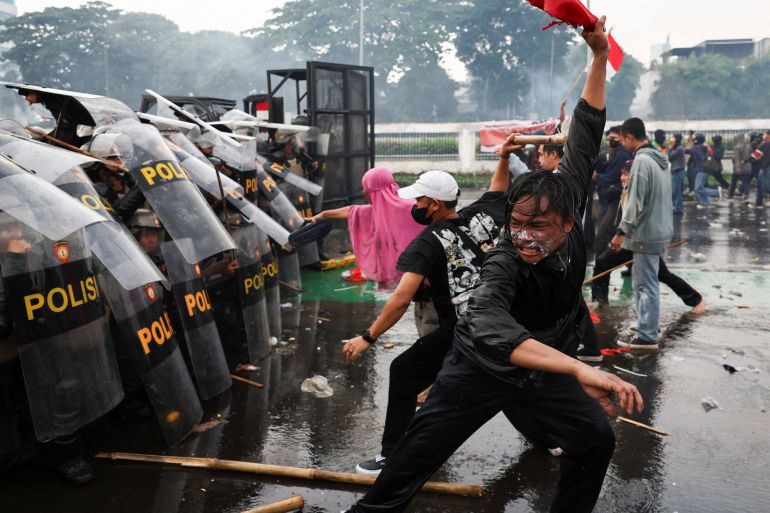Following the tragic death of a motorcycle taxi driver hit by a police car during a demonstration over a range of cost-of-living issues, protests have resumed in Indonesia’s capital, Jakarta.
As riot police dispersed crowds of people calling for higher wages, lower taxes, and the elimination of political allowances, Affan Kurniawan was killed on Thursday when an armoured police vehicle struck him outside Indonesia’s House of Representatives.
Students urged protesters to rally after the death of Kurniawan on Friday outside the capital city’s police headquarters, and motorcycle taxi drivers gathered outside Jakarta Mobile Brigade Corps headquarters.
President Prabowo Subianto demanded calm, expressed condolences for Kurniawan’s passing, and set up a thorough investigation of the incident.
In a video message, Prabowo stated, “I am shocked and depressed by the officers’ excessive behavior, and I must hold the officers responsible.”
Police use tear gas
Local media reported that riot police used water cannons and tear gas to disperse demonstrators as the protest continued into the night.
Asep Edi Suheri, the police chief in the capital, claimed Kurniawan, who worked for Gojek and Grab, was hit and killed by an armored police vehicle during the clashes.
Kurniawan was not involved in the protests, according to the driver’s family and a motorcycle drivers’ association.
In a late on Thursday news conference, he said, “As police chief and on behalf of the entire unit, I would like to express my deepest apologies and condolences.”
This week, tens of thousands of people took to the streets in Jakarta and other cities to protest a new monthly housing allowance for politicians that is 20 times the national minimum wage.
The demonstrators are also protesting the textile industry’s low wages, cuts to government funding, and other issues.
The protests are a “culmination of months of not only economic but also political frustration all over the country,” according to co-founder Abigail Limura of What Is Up, Indonesia?
“We are in the midst of a deteriorating economy, a collapsed job market, and thousands of layoffs. And instead of being compassionate, these people are constantly met with insults, tone-deaf, and indifference, she said.
Protesters were also upset about the ongoing issue of police brutality and the police’s overt response to demonstrations this week, according to Usman Hamid, executive director of Amnesty International Indonesia.
The motorbike taxi driver’s case is just one of many instances of excessive police force. He told Al Jazeera that there are too many cases in Indonesia, including West Papua. “We are constantly getting credible reports about arbitrary arrest and detention, torture, and extrajudicial killing,” the statement continues.





